Can you water plants with bath water? Experts reveal the pros and cons
Whether or not you decide to use bath water to hydrate your plants depends on several factors – here's what you need to know

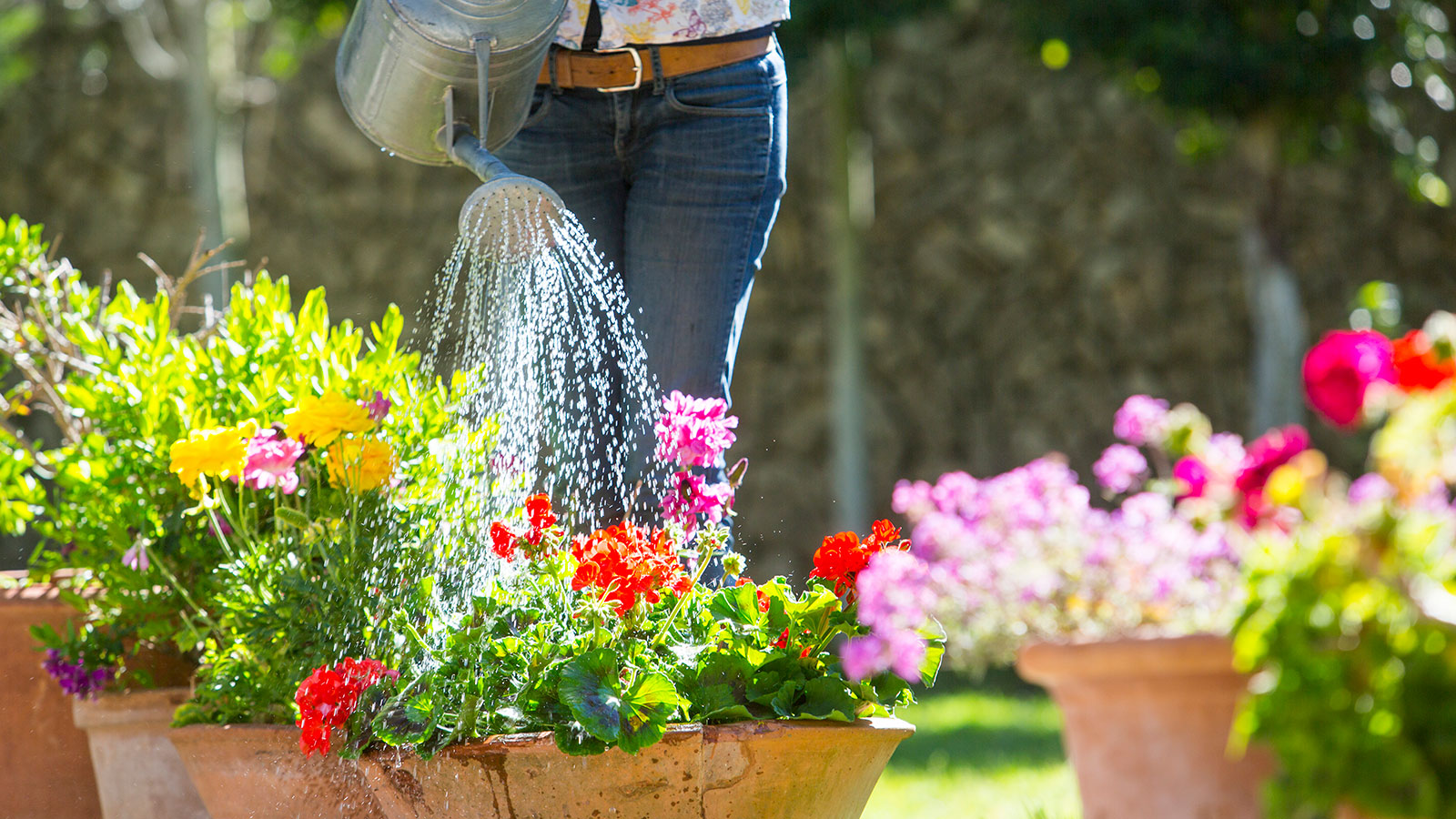
Q: I'm keen to conserve water in my garden wherever possible as I live in a climate regularly affected by drought. My friends are talking about using bath water to irrigate their plants. As I'm very eco-minded I'm keen to try this too. But is it safe for my plants?
A: Using bath water as part of your plant watering routine is something many people are considering in the bid to save water and help the environment but there are a few issues surrounding the advisability of doing this before you make up your mind. Especially as you don't want to make garden watering mistakes that might harm your plants.
Keep in mind that certain haircare and skincare products in your bathroom may be harmful when used to water plants. Look at the labels to find out which additives and chemicals are found in the products you use regularly. It might be time to start choosing more natural, eco-friendly ones as part of a greener lifestyle, especially if you are considering using bath water for watering your plants.
Can I use bath water for plants?
'The short answer about whether or not you can water plants with bath water is, it depends,' says Josh Tesolin, gardening expert and co-founder of RusticWise. 'It depends on the type of products you're using in the bath or shower, and also on the types of plants you're watering.' For example, watering drought-tolerant shrubs with bath water is generally fine, but vegetables not so much.
'If you want to use bath water to water plants, it's best to stick with bath or shower products that are biodegradable, free of salt, non-toxic, and also boron-free,' explains Josh.
Use bath water for ornamental plants only, and remember that drought-tolerant planting, such as succulents or native species, is generally better suited for what is known as gray water irrigation using bath water.

A farm boy from the start, Josh grew up on his dad’s cattle farm in Alberta. It was on this farm that he was mentored by a wise old-timer named Charlie, who was a family friend and also lived on the farm. Charlie passed along plenty of gems of wisdom about gardening, chickens, crafts, and all-around life hacks which Josh now shares on his website.
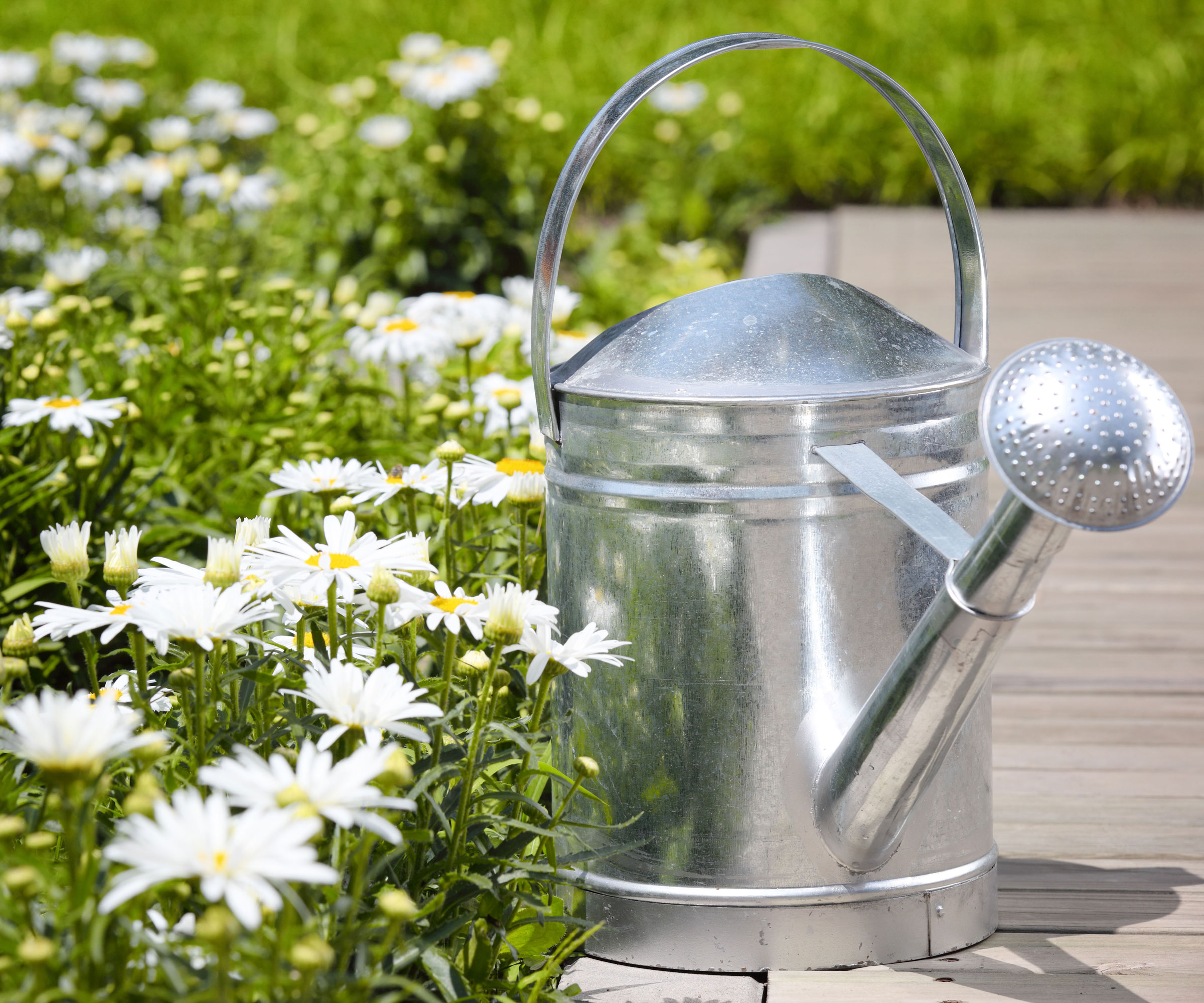
Reusing bath water can be a smart way to keep plants hydrated
The pros of using bath water
Watering plants with bath water can be an eco-friendly practice for a sustainable garden if done correctly. 'As an experienced gardener, I have personally experimented with reusing gray water from baths and showers for certain types of plants,' says horticultural expert and garden planner Diana Cox.
Design expertise in your inbox – from inspiring decorating ideas and beautiful celebrity homes to practical gardening advice and shopping round-ups.
'When properly diluted and utilized, bath water can serve as a sustainable secondary water source during periods of drought or water restrictions. However, it is crucial to be cautious of salt and chemical build-up, as plants always thrive best when provided with a combination of fresh and recycled water.'
There's more good news too. 'Bath water contains nutrients, such as nitrogen and phosphorus, that can be beneficial to plants in small quantities,' says Diana. 'However, the high salt concentration can be detrimental if used excessively or in large amounts. It is advisable to dilute the bathwater with fresh water at a ratio of 1:1 or 1:2 before using it on your plants.'
If you learn how to make a rain barrel you can harvest rainwater so you easily dilute the bath water when needed. Or if you're not handy at DIY, opt for a ready-made rain barrel complete with all the fittings you'll need, such as this heavy-duty barrel from Amazon.
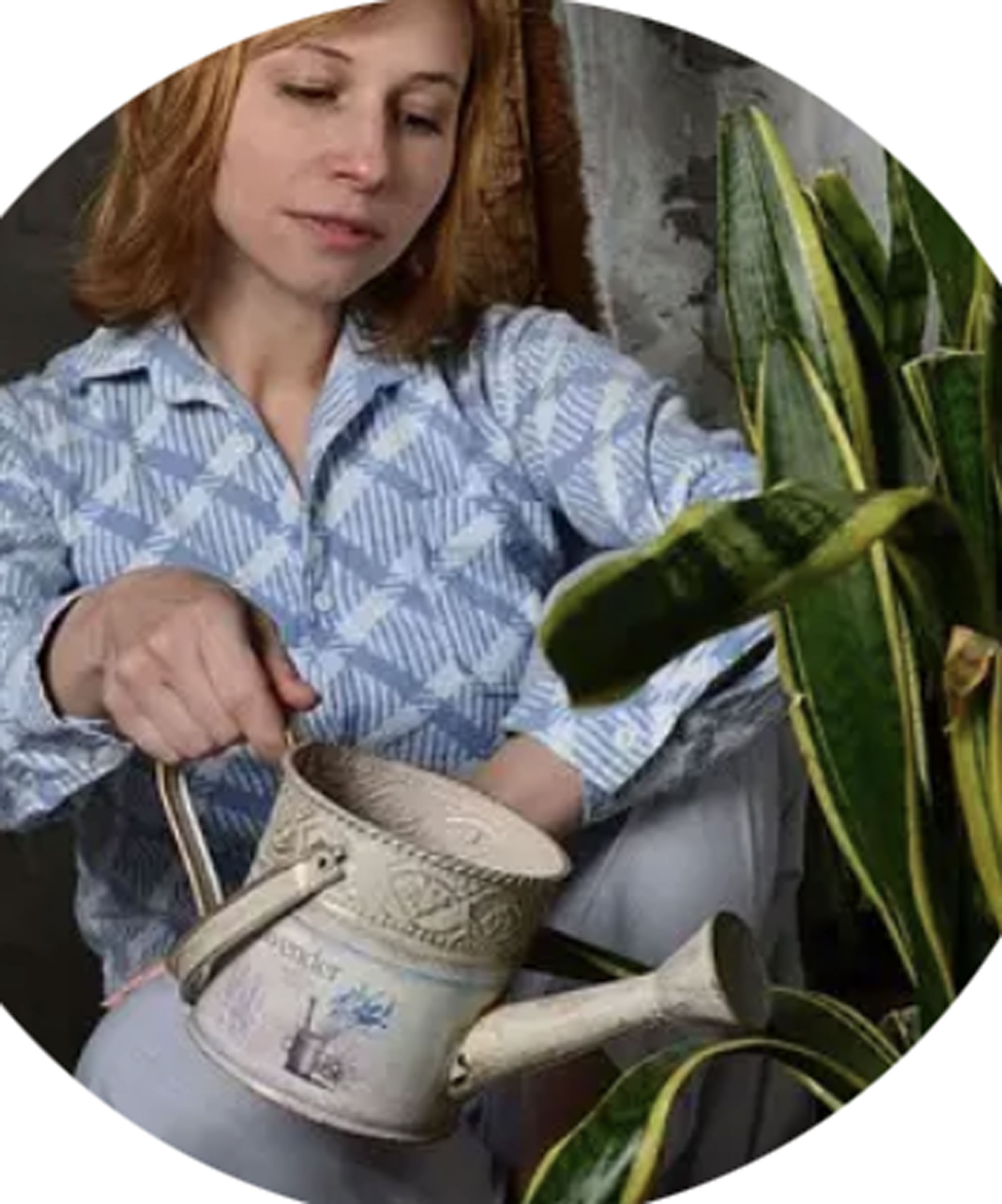
Diana started her website The Gardening Talk as a way to help others who are new to the world of gardening and plant care. She has been growing plants since she was a little girl, and started to document her experience in gardening a few years ago.
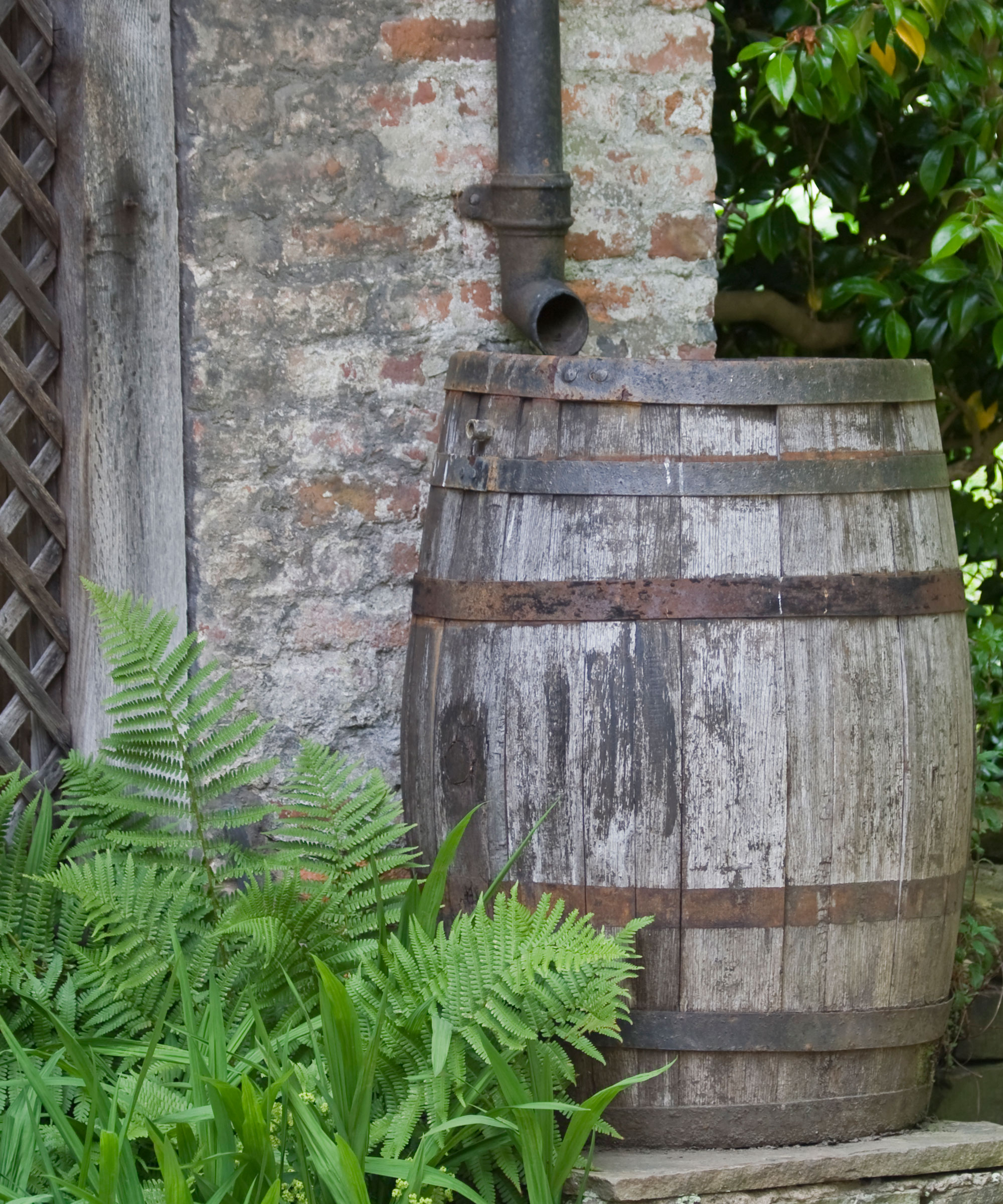
If you're recycling bath water it's a good idea to dilute it with harvested rainwater
The cons of using bath water
'I would not recommend watering plants with bath water on a regular or frequent basis,' says plant expert and environmental engineer Jamie Mitri, founder of Moss Pure. 'The damage that can be done to a plant depends on how diluted the bath water is, or how much soap, shampoo, and other products it contains. The chemicals in products like soap and shampoo can damage a plant and its leaves. Some plants are more sensitive to the chemicals.'
It's important to avoid using bath additives like salts, oils, or bubbles, as they may not be suitable for plants. 'Monitor soil moisture levels to prevent overwatering and adjust watering accordingly,' says Alex Tinsman, founder of How to Houseplant. 'It's beneficial to rotate between different water sources, including tap water and rainwater, to maintain a balanced growing environment.'
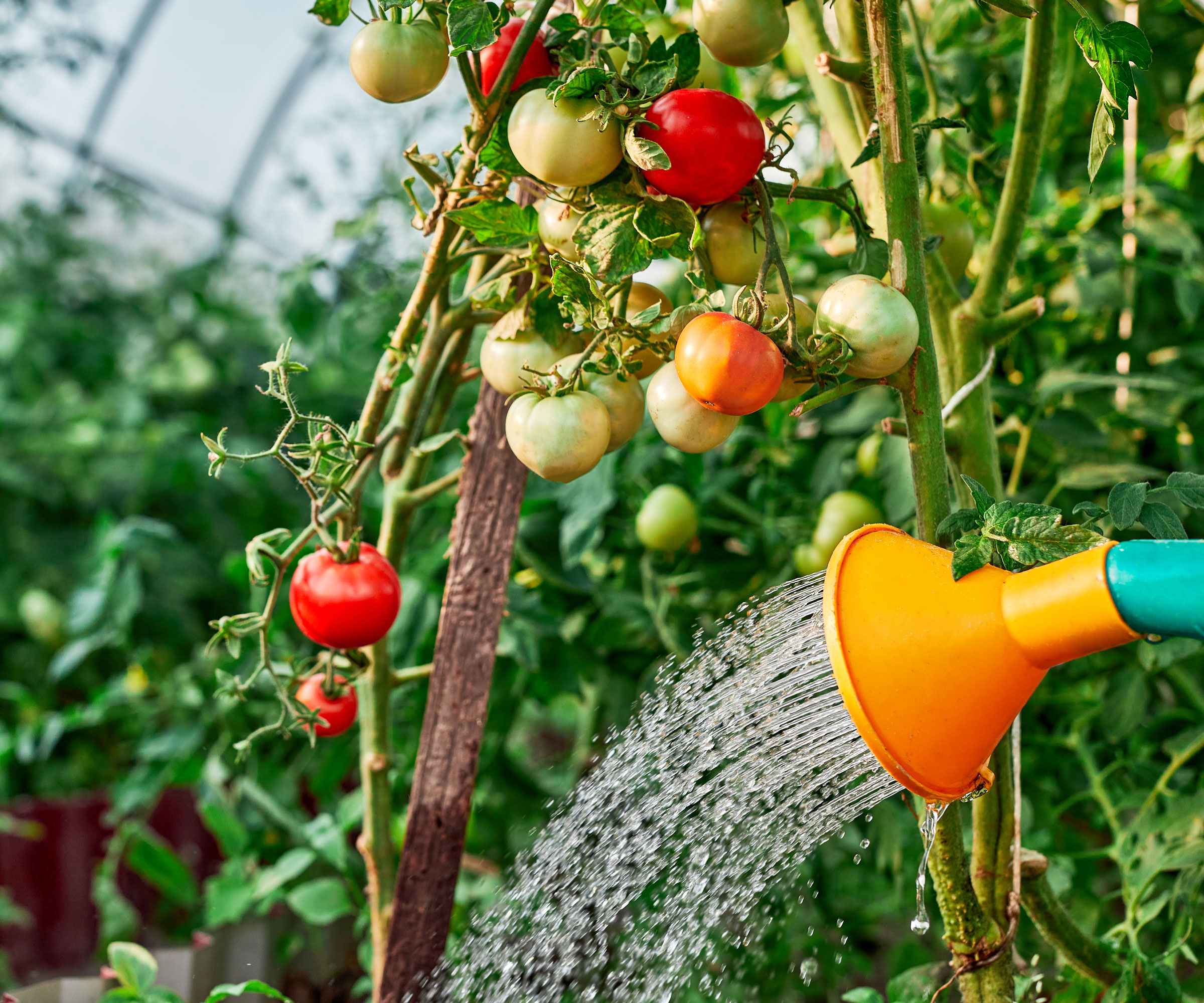
Avoid using bath water for watering vegetables such as tomato plants
The best way to water plants with bath water
It's important to factor in what time of day is best if you're considering when to water plants, with bath water or otherwise. Experts agree watering is best done in the morning. As temperatures rise and the sun comes out, plants start to transpire and lose water through evaporation. By using bath water on your plants at the right time of day, you can help them survive drought conditions.
Using bath water for watering plants can be a sustainable practice with a few considerations. 'Before using the bath water, test its pH level to ensure it's suitable for your specific plants,' suggests Diana Cox. 'Most plants thrive in slightly acidic conditions, with a pH between 6 and 7. If the water is too alkaline, further dilution with fresh water is recommended.' Use water pH testing strips like these ones from Amazon.
Another factor to consider is the temperature of the bath water. Plants generally prefer water that is at or near room temperature. If the bath water is too hot or too cold, it can be detrimental and put plants into shock mode.
Instead of splashing the leaves with water, aim for the roots and soil surrounding the plants as these areas are less susceptible to contamination. This 2 gallon watering can from Amazon has a long spout, making it easier to direct the water to where you need it most.
Another option is looking at the latest outdoor shower ideas. As well as providing a great way of cooling off in your yard, you can use a bucket to collect the water for the garden.
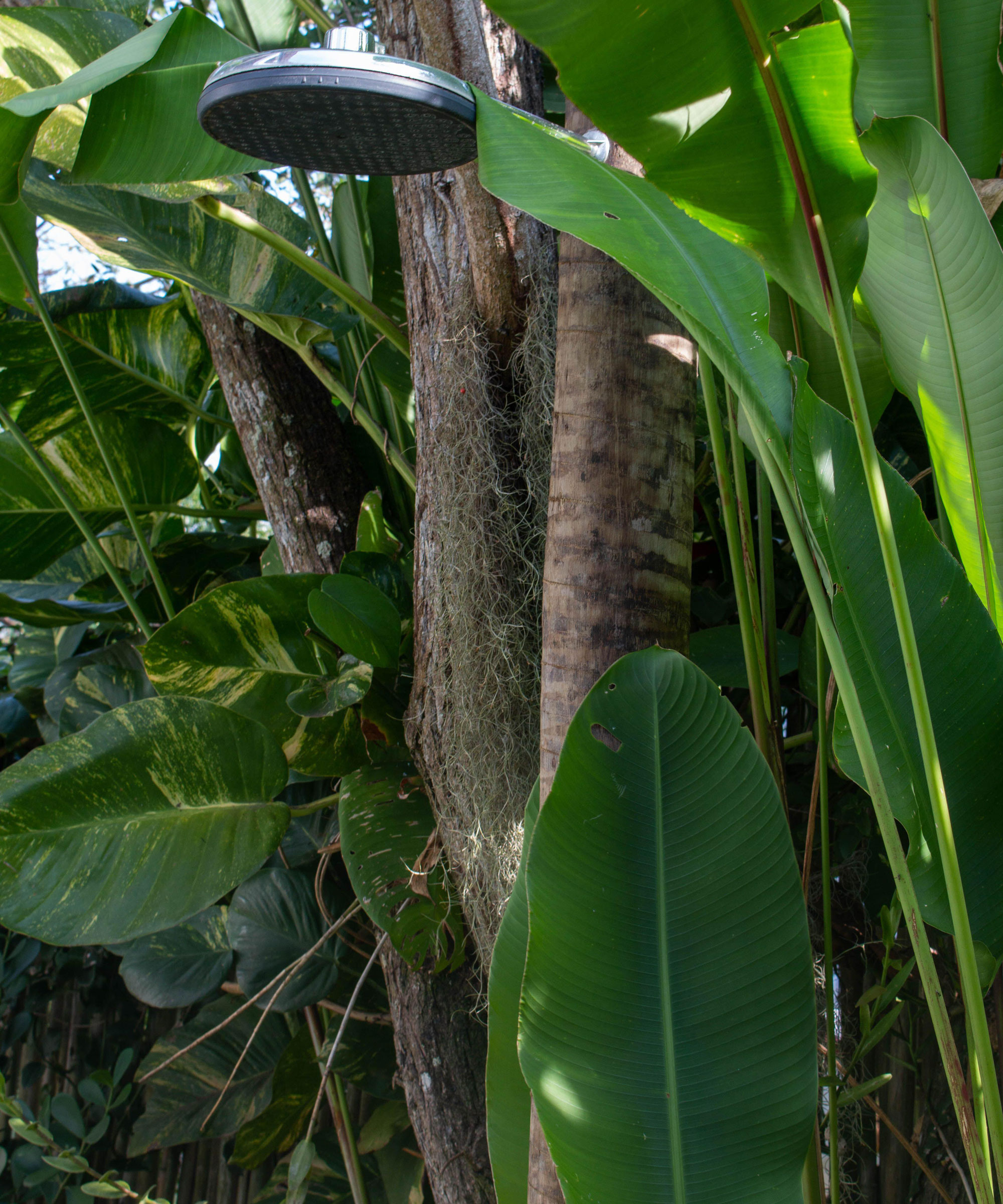
If you have an outdoor shower in your yard you can recycle the water for your plants
FAQS
Can you use bath water on fruit and vegetable plants?
'In general, you should avoid using bath water on vegetables or other crops you plan on eating,' says Josh Tesolin, gardening expert and co-founder of RusticWise. 'Watering landscape or ornamental plants is okay depending on the types of products you're bathing with.' Opt for mild, biodegradable bath products to minimize harm to plants and soil organisms.
It is best to avoid using bath water on edible plants or young seedlings in your vegetable garden. 'The runoff from shampoos, soaps, and other bath products may be absorbed by the leaves and roots,' says horticultural expert and garden planner Diana Cox. 'Instead, reserve the diluted bath water for watering well-established plants, lawns, and trees.'
What is gray water irrigation?
Gray water is the collective term for water from the bathroom (shower and bathtub) and kitchen (washing machine rinse cycle only, as softened tap water and dishwasher water are less useful as they contain salts that can damage soil structure). This means gray water may contain contaminants such as soap and detergent because of where it's coming from.
According to the horticultural experts at the RHS, gray water should be saved for only 24 hours to minimize bacterial growth, unless you're using a professionally designed system.
'If you're keen on the idea of reusing bathwater for plants, consider installing a gray water system designed to collect and filter water from various household sources, including bathtubs,' says Itamar Ben Dor, founder of Green-Life. 'The water is treated to remove contaminants before being used for irrigation. Gray water systems ensure that the water reaching your plants is free from harmful chemicals.'
Check local regulations regarding gray water use, as restrictions or guidelines may exist, especially during drought conditions. 'Some areas have strict laws regarding the utilization of non-potable water for irrigation,' says horticultural expert and garden planner Diana Cox. 'If it is permitted, a simple valve system can redirect bathwater to an outdoor storage tank for later use in your garden.'
In conclusion, whether or not you can water plants with bath water depends on what you've put in your bath water, what type of plants you're watering, and how you're watering them.
Recycled bath water should be used with care, but can be diluted and directed towards the roots for best results. It can be useful in times of drought and water shortages to help keep your plants irrigated. But don't use it for edible crops and seedlings, due to the risk of contamination.
Remember, choosing drought tolerant landscaping ideas whenever you can shifts the emphasis away from watering dilemmas such as this one.

Lifestyle journalist Sarah Wilson writes about garden design and landscaping trends for Homes & Gardens. She has studied introductory garden and landscape design, and also has an RHS Level 2 qualification in the Principles of Plant Growth and Development. She is a regular contributor to Homes & Gardens and Livingetc. She has also written for Country Living, Country Homes & Interiors, and Modern Gardens magazines